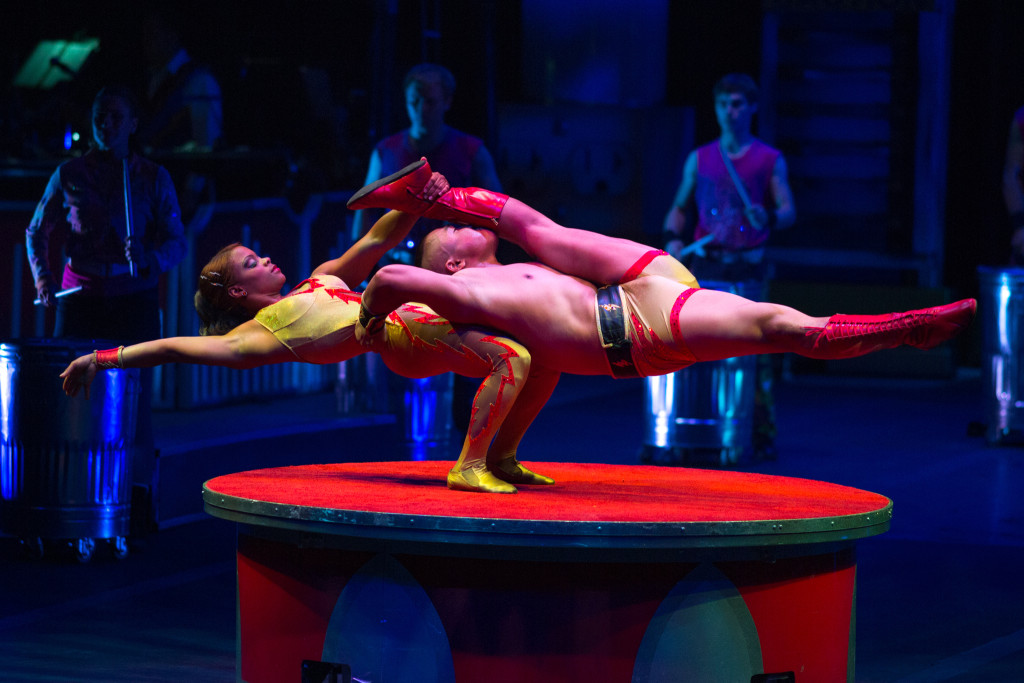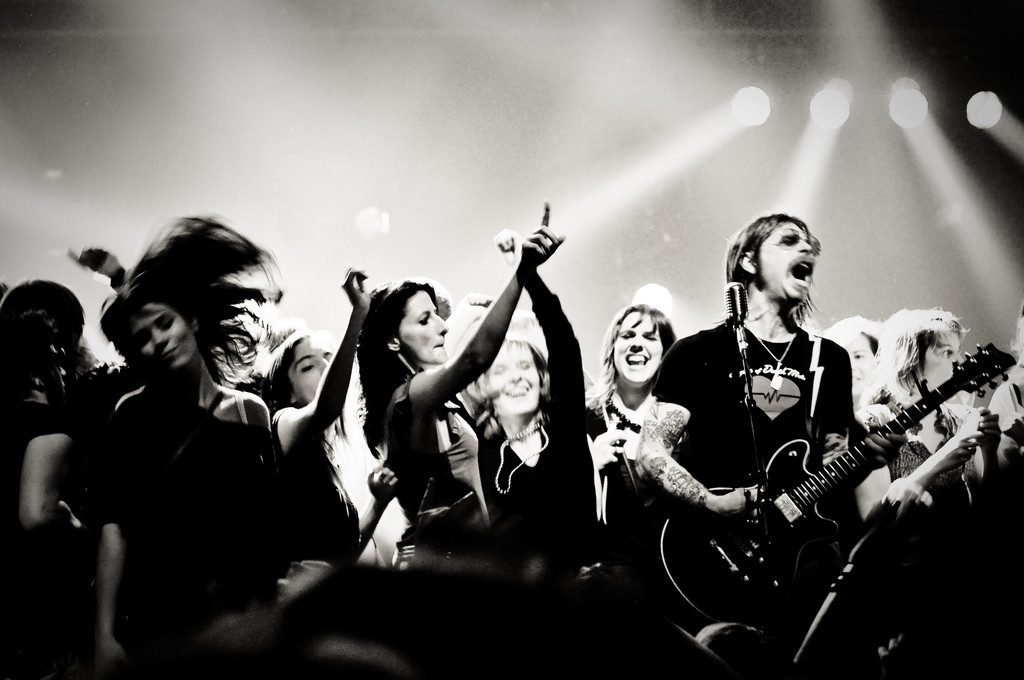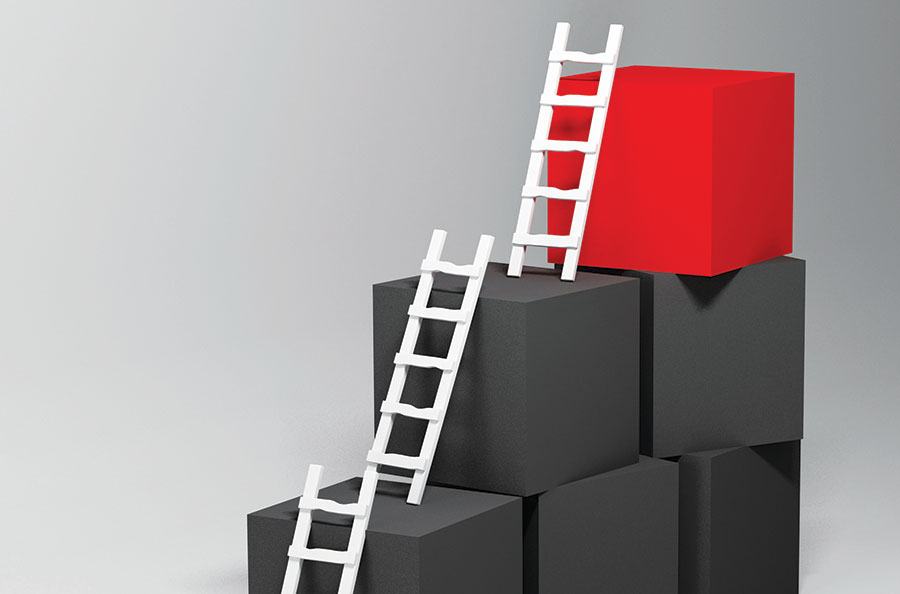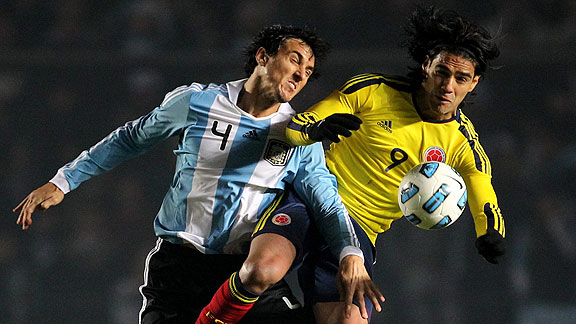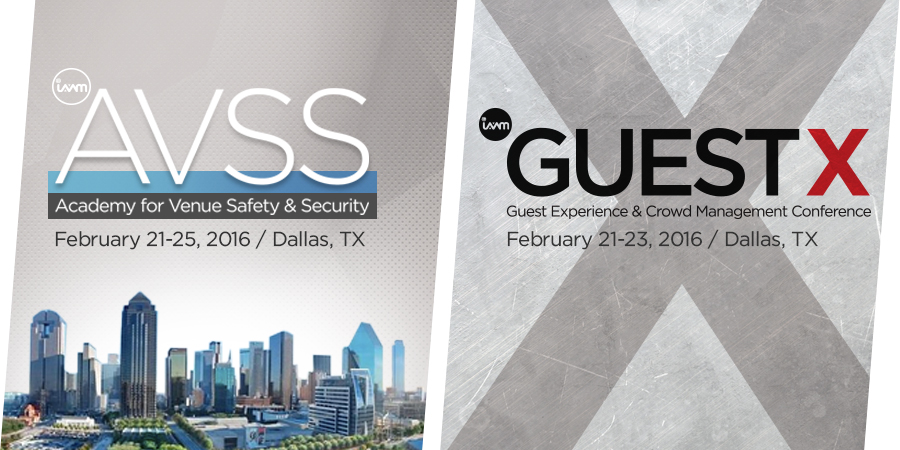Feld Entertainment and Circus Magic
The New York Times published a great article last week about Feld Entertainment, specifically about Ringling Bros. and Barnum & Bailey circus. The story by Stephanie Sinclair and Taffy Brodesser-Akner shows how the business adapts to change in order to stay relevant and entertaining to audiences.
“The circus has changed over the years,” Feld Entertainment CEO and Chairman Kenneth Feld told the reporters. “There’s no other entertainment that’s been around for this long that you could name. We’re older than baseball. We’re older than Coca-Cola. I don’t know how many times it’s been reimagined, reinvented, but I know we’ve probably done it six, eight times. We’re going to do it again without the elephants in a whole different way. Then we’re going to do it again and we’re going to do it again and we’re going to do it again.”
Even though the circus isn’t Feld’s most popular entertainment offering, the company considers itself “stewards of an important legacy” and it is an “inspiration for everything they do,” because technology is making it harder for live events to amaze people.
“Somehow, over the past few decades, we’ve forgotten how to be impressed by physical achievements, incredible feats that no normal person can do,” the reporters wrote. “Nowadays, you go to Times Square, and you don’t see people juggling and eating fire and doing delightful busking; you see people in superhero and Elmo costumes doing nothing but existing off versions of something that appears in movies, on TVs and in toy stores.
“The circus is the last bulwark against all that,” the reporters conclude. “Which is why the Felds are driven to demonstrate, once again, what is magical and singular about it.”
For more about Feld, the circus, and its performers, please read “Running Away With the Circus” in The New York Times.
(Image: Darrell Miller/Creative Commons)
News You May Have Missed
These are selected news articles that showed up in our inboxes on Monday morning that we want to pass along to you.
Bataclan Killings Underscore Vulnerabilities At Small Venues In Paris, Around The World (International Business Times)
“While the extreme force used Friday would have overwhelmed most small venues, the reality is that larger stadiums and arenas around the world have made substantial investments to improve the security measures in place for both event attendees and performers, while smaller venues like the Bataclan have patchwork security protocols that may involve little more than checking an ID.”
Nederlander and TAG Presents Form Venture in Austin, Launch Venue Called Skyline Theater (Billboard)
“The Skyline Theater is located on the grounds of the Long Center for the Performing Arts, situated in the heart of downtown Austin, overlooking Ladybird Lake. In a multi-year contract, Paragon Presents will be the exclusive promoter for productions at the Skyline and will present a wide range of concerts and productions.”
Washington State Convention Center to Acquire Land for Expansion (Meetings & Conventions)
“The WSCC will pay $238 million in principal and interest payments to King County Metro over the next 30 years for the site.”
The Coolest Stadium Features in the NFL (Bleacher Report)
“When fans attend a football game in person, they want a superb experience, and NFL teams are making sure they get it.”
Smart City Networks Implements IPv6 at Orange County Convention Center (Nevada Business)
“IPv6 provides expansive space for IP addresses, allowing convention center visitors with IPv6-compatible devices to access all areas of the Internet.”
Sporting Kansas City’s Stadium Will be Named Children’s Mercy Park (The Kansas City Star)
“Sporting Park has not had a naming-rights sponsorship since the club ended its agreement with the Livestrong Foundation in January 2013.”
(Image: Kmeron/Creative Commons)
An IAVM Update from Karen Totaro, CFE
As promised IAVM members, the plan is to take you all along for the journey this year as the board tackles several items that are instrumental to the future of IAVM. With that in mind, we wanted to update you on some helpful information that was shared on the October Board of Directors call so that you have as much insight into the happenings of our favorite association as the board does.
The three most pertinent items of interest:
- 2nd Vice Chair Selection Criteria – The Governance Committee chaired by Mark Mettes, CFE, was given the task of developing a fair, transparent 2nd Vice-Chair selection criteria and process that will carry the IAVM into the future. The goal was to ensure all members know and understand the necessary accomplishments needed to be considered for 2nd Vice Chair thus the ascension to the Chairman of the Board role for IAVM. The results are challenging as they should be, but we found them to be fair and easily transparent. We encourage you to read the criteria and share them with other members. The application will be made available on Nov. 20, 2015 and can be found on the IAVM website. In addition, the Leadership Development/Nominating Committee chaired by Kim Bedier, CFE, will help roll out the information in several ways to ensure our members have the criteria and a complete understanding of the process prior to the Dec. 31, 2015 deadline.
- Conference Structure – This past July, the team at IAVM headquarters presented some very relevant information to the board about the challenges we are facing with the continued decline of attendance at VenueConnect. It was a fact-based, data-driven presentation in terms of attendance numbers and revenue dollars over the last 15 years. In addition, the team shared some “big picture” ideas of what possibilities might be worth considering to help turn the numbers around. They were and still are just potential ideas to get us all thinking about where we want to go with our conferences and trade show. The largest revenue producing event that accounts for 33 percent of the overall IAVM operating budget is indeed VenueConnect. Over the next two months, a tag-team of one of our Executive Committee members along with a team member from headquarters will share the same information with all of our sector committees, the VenueConnect Program Committee, and our Allied Committee, just to name a few. We are also going to have a webinar to share this information so that all members may have the opportunity to see the data. Stay tuned for dates and times. We need and very much want all of your ideas, thoughts, and suggestions. Please participate, as you just might have the perfect idea! The Executive Committee and staff want to gather as much feedback as possible so that when the board re-groups in January we will be able to share the members’ feedback with the entire board. After the board meeting, we will contact all the committees again to share updates and gather additional input for whatever might be the next step we agree to.
- Board Structure – Last year, we started the conversation at the board level with regard to challenges in how the board is currently structured. We shared this information with all the members through various listening exercises throughout the year to gather your input and thoughts. In January, the board is going to re-group and share the feedback so we can understand what is critical in the make-up of the board to all of us as members. The idea on this item is to delve into what structure can best sustain IAVM well into the future, while ensuring there is continual input and feedback from representation of all our members.
As a board, we are representing each one of our members so it is important to us and to the future of IAVM that our members are part of the decision making process. Please check out the 2nd Vice Chair criteria and share it with others who might be perfect for the role! Continue to give feedback and ideas to any board member to bring to our January mid-year meeting, and know I am an email or phone call away.
Have a wonderful holiday season!
10 U.S Venues to Host 2016 Copa America Centenario
U.S Soccer and the confederations of CONCACAF (North America, Central America, and Caribbean) and CONMEBOL (South America) recently announced the 10 U.S. venues that will host the historic Copa America Centenario to be played June 3-26, 2016.
Copa America, CONMEBOL’s historic South American Championship, will be staged outside of South America for the first time in its 100 year history. The historic centennial edition will feature all 10 teams from CONMEBOL as well as six teams from CONCACAF, including the U.S. and Mexico.
With global soccer powers such as Brazil, Colombia, and Argentina participating, sell-out crowds are expected at nearly every match where stadium capacities are a minimum of 60,000. IAVM has active members at seven of the 10 venues where multiple games will be played, including MetLife Stadium where the final will take place June 26, 2016.
One aspect of the event that I’d assume every venue is taking into account is crowd control procedures for specific games where tensions could boil over into the stands as it did in the 2015 final between Chile and Argentina. As venue managers, how does your staffing for an event such as this compare to that of an NFL game? Would you manage a USA vs. Mexico soccer game the same way you would for a College Football Bowl game? What about Chile vs. Argentina? How do the demographics of fans, teams rivalries, and meaning of the event affect your game-day staffing and planning procedures?
(Image: Ver en vivo En Directo/Creative Commons)
Crowd Management Expert Scott McCartney to Speak at IAVM’s Academy for Venue Safety & Security School and the GuestX Conference
The International Association of Venue Managers (IAVM) is pleased to announce that Scott McCartney will speak and lead a session on crowd management and security at the 2016 Academy for Venue Safety & Security (AVSS) and GuestX: Guest Experience & Crowd Management Conference.
“In light of the recent Paris attacks, IAVM wants to ensure our safety and security training in 2016 addresses key areas of preparedness for all venue managers,” said Mark Herrera, IAVM’s director of education. “Scott McCartney is an exceptional addition to the AVSS and GuestX 2016 programs, and the experience and expertise that he brings will be tremendous for every student and attendee.”
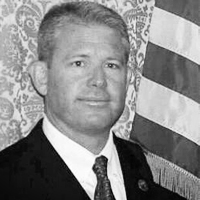 McCartney is the project director of the Large Stadium Initiative with the California Governor’s Office of Emergency Services. The initiative is based on the premise that a majority of stadiums are owned by municipal or state governments, and therefore security varies from facility to facility. This program explores commonalities of large stadium/venue Homeland Security preparedness issues and assists in developing strategies for enhancing prevention, response, and recovery capabilities. He earned national recognition as a Master Exercise Practitioner from the U.S. Department of Homeland Security and the Federal Emergency Management Agency.
McCartney is the project director of the Large Stadium Initiative with the California Governor’s Office of Emergency Services. The initiative is based on the premise that a majority of stadiums are owned by municipal or state governments, and therefore security varies from facility to facility. This program explores commonalities of large stadium/venue Homeland Security preparedness issues and assists in developing strategies for enhancing prevention, response, and recovery capabilities. He earned national recognition as a Master Exercise Practitioner from the U.S. Department of Homeland Security and the Federal Emergency Management Agency.
McCartney’s discussion at AVSS and GuestX will focus on all hazards pertaining to crowd management and security, broken down into three categories: Assessments (venue staff, facility, policy and procedures), Training (establishing training guidelines, staff, continuous training), and Exercises (discussion based, drills, and full scale).
“During the discussion, I will use several ‘real situations’ I have been a part of and worked through to help illustrate for attendees the importance of crowd management and security,” McCartney said.
AVSS takes place Feb. 21-25, 2016, and GuestX takes place Feb. 21-23, 2016, with both taking place at the Renaissance Dallas Hotel. Registration and more information can be found at http://iavm.org/avss and http://iavm.org/guestx.
Do you want to receive a Front Row News weekly digest?
Categories
- Allied (856)
- Architecture (147)
- Arenas (744)
- Career (890)
- Convention Centers (889)
- Education (608)
- Events (1,528)
- Food & Beverage (193)
- Foundation (113)
- Guest Experience (1,482)
- Industry News (2,253)
- Leadership (1,872)
- Marketing (150)
- Membership (1,985)
- Music (212)
- Performing Arts Centers (453)
- Professional Development (398)
- Research (127)
- Safety & Security (425)
- Sports (763)
- Stadiums (607)
- Student (159)
- Technology (515)
- Ticketing (92)
- Touring (82)
- Trends (357)
- Uncategorized (771)
- Universities (216)
- Video (25)
- Young Professional (198)
Twitter Feed
- Twitter feed loading
Recent Posts
- GEODIS Park Selects Allied Universal As Its Preferred Event Services Provider
- Venuworks Appoints Marc Solis as Executive Director of the Fresno Convention and Entertainment Center
- Los Angeles Convention Center Diverts 8,000 Pounds of Wood Waste to Local Foundation Supporting Fire Victims
- Fort Worth Unveils Plans for Phase 2 of Convention Center Transformation
- San Diego Convention Center CEO Announces Retirement After a Decade of Leadership
Categories
- Allied
- Architecture
- Arenas
- Career
- Convention Centers
- Education
- Events
- Food & Beverage
- Foundation
- Guest Experience
- Industry News
- Leadership
- Marketing
- Membership
- Music
- Performing Arts Centers
- Professional Development
- Research
- Safety & Security
- Sports
- Stadiums
- Student
- Technology
- Ticketing
- Touring
- Trends
- Uncategorized
- Universities
- Video
- Young Professional
Archives
- February 2026
- January 2026
- December 2025
- November 2025
- October 2025
- September 2025
- August 2025
- July 2025
- June 2025
- May 2025
- April 2025
- March 2025
- February 2025
- January 2025
- December 2024
- November 2024
- October 2024
- September 2024
- August 2024
- July 2024
- June 2024
- May 2024
- April 2024
- March 2024
- February 2024
- January 2024
- December 2023
- November 2023
- October 2023
- September 2023
- August 2023
- July 2023
- June 2023
- May 2023
- April 2023
- March 2023
- February 2023
- January 2023
- December 2022
- November 2022
- October 2022
- September 2022
- August 2022
- July 2022
- June 2022
- May 2022
- April 2022
- March 2022
- February 2022
- January 2022
- December 2021
- November 2021
- October 2021
- September 2021
- August 2021
- July 2021
- June 2021
- May 2021
- April 2021
- March 2021
- February 2021
- January 2021
- December 2020
- November 2020
- October 2020
- September 2020
- August 2020
- July 2020
- June 2020
- May 2020
- April 2020
- March 2020
- February 2020
- January 2020
- December 2019
- November 2019
- October 2019
- September 2019
- August 2019
- July 2019
- June 2019
- May 2019
- April 2019
- March 2019
- February 2019
- January 2019
- December 2018
- November 2018
- October 2018
- September 2018
- August 2018
- July 2018
- June 2018
- May 2018
- April 2018
- March 2018
- February 2018
- January 2018
- December 2017
- November 2017
- October 2017
- September 2017
- August 2017
- July 2017
- June 2017
- May 2017
- April 2017
- March 2017
- February 2017
- January 2017
- December 2016
- November 2016
- October 2016
- September 2016
- August 2016
- July 2016
- June 2016
- May 2016
- April 2016
- March 2016
- February 2016
- January 2016
- December 2015
- November 2015
- October 2015
- September 2015
- August 2015
- July 2015
- June 2015
- May 2015
- April 2015
- March 2015
- February 2015
- January 2015
- December 2014
- November 2014
- October 2014
- September 2014
- August 2014
- July 2014
- June 2014
- May 2014
- April 2014
- March 2014
- February 2014
- January 2014
- December 2013
- November 2013
- October 2013
- September 2013
- August 2013
- July 2013
- June 2013
- May 2013
- April 2013
- March 2013
- February 2013
- January 2013
- May 2012
- March 2012
- December 2011
- November 2011
- October 2011
Recent Comments
- Frank Bradshaw, Ph.D., CVE on John Meyer, CVE, a Tireless Advocate of Certification for Venue Professionals, Has Died
- Neil Sulkes on Hilary Hartung, Friend to Many in Venue Marketing, Has Left Us
- Jason Parker, CVE on The Devastation of Hurricane Helene and How We Can Support One Another
- Larry Perkins on Touhey Testifies Against Speculative Ticketing Before Congressional Subcommittee
- Peter Secord on Major Players for Planned Elkhart Amphitheater Were in the Mix at VenueConnect

